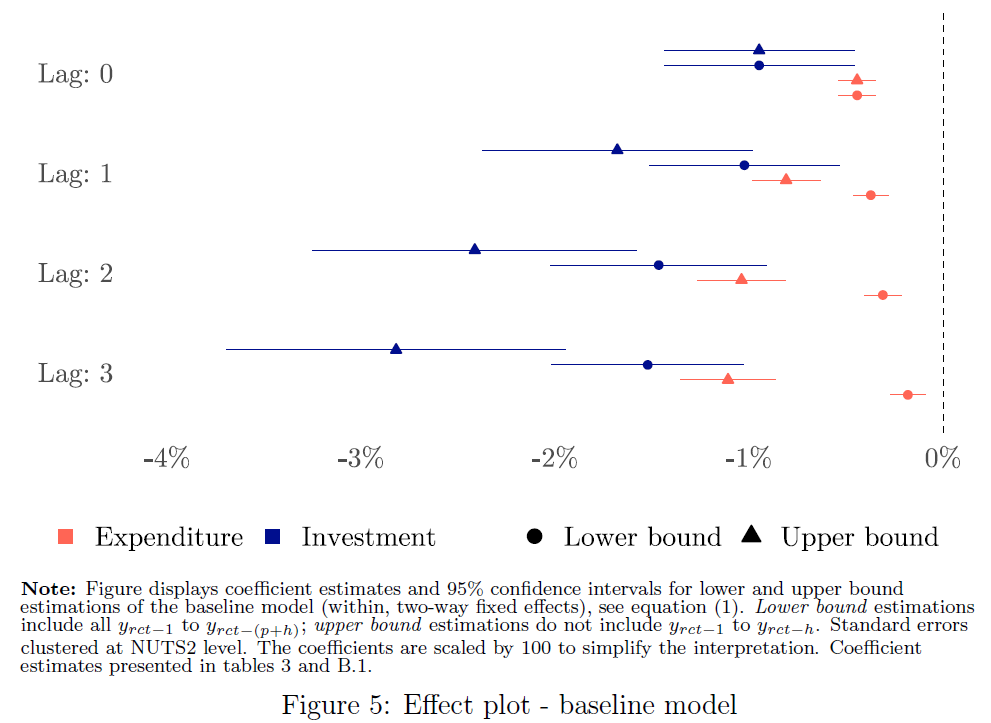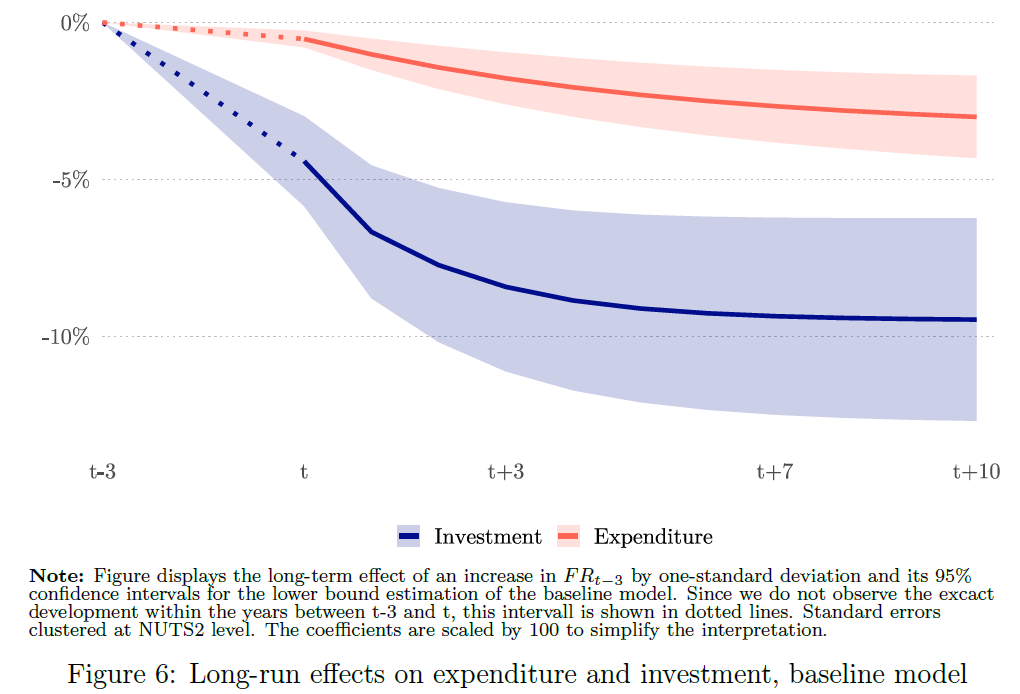Reduzieren Fiskalregeln öffentliche Investitionen?
English title: Do Fiscal Rules Reduce Public Investment? Evidence for European Regions. Ein Working Paper mit der Universität Münster.
In einem gemeinsamen Paper haben Leonard Mühlenweg (FiscalFuture e.V.; ehem. Universität Münster) und Dr. Lena Gerling (CIW, Universität Münster) den Effekt von Fiskalregeln auf Staatsausgaben und Investitionen auf subnationaler Ebene untersucht. Das Paper ist in englischer Sprache verfasst.
Was wir herausgefunden haben
- Eine Verschärfung von Fiskalregeln um eine Standardabweichung führt zu einer signifikanten Reduktion von öffentlichen Investitionen von bis zu 4,41 Prozent auf der subnationalen Ebene (baseline, nach 3 Jahren). Die Reduktion der öffentlichen Investitionen ist bis zu achtmal stärker als die Reduktion der Gesamtausgaben.
- Fiskalregeln führen nicht zu einer besseren Priorisierung öffentlicher Ressourcen, sondern zu Einsparungen bei Investitionen.

- Langfristig zeigen unsere Schätzungen, dass sich Investitionen nachhaltig um 9,4 Prozent reduzieren.

English Abstract
This paper analyses the impact of fiscal rules on different public spending categories, namely public expenditure and investment, at the subnational level in Europe. Building on the notion of the deficit bias, we suspect that in the presence of fiscal rules, politicians have an incentive to reduce public spending through disproportionate cuts in investments. To empirically test this hypothesis, we focus on subnational administrative levels since budget reallocations can be expected to be pronounced at these levels and because the empirical evidence here is scarce. We introduce a new index based on partially ordered set theory (POSET), using the EC’s fiscal rules dataset, which allows us to analyze the stringency of fiscal rules for different levels of government. Our balanced dataset covers 179 NUTS2 regions in 14 EU member states from 1995 to 2018. The empirical analysis is based on Within, GMM, and instrumental variable estimators. Our empirical findings are highly robust. In our baseline model, a one standard-deviation increase in our fiscal rules stringency index reduces overall public expenditure by up to 1.28 percent, while investment declines by more than 4 percent. The results imply that more stringent fiscal rules lead to a disproportionate reduction in public investment as compared to overall expenditure.
